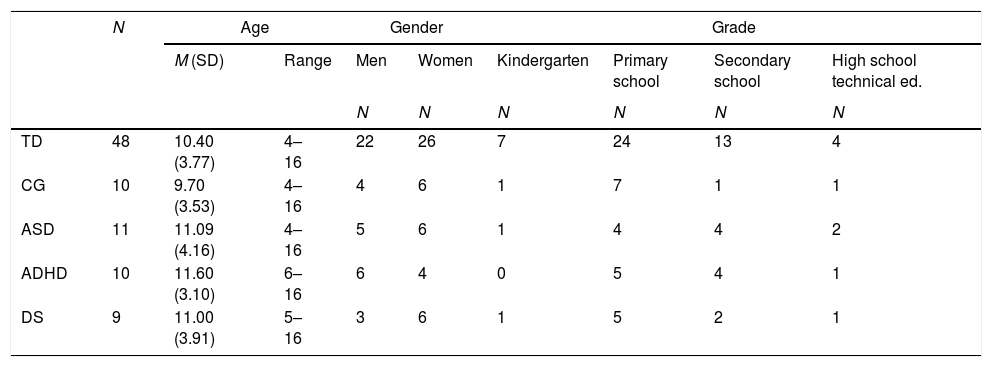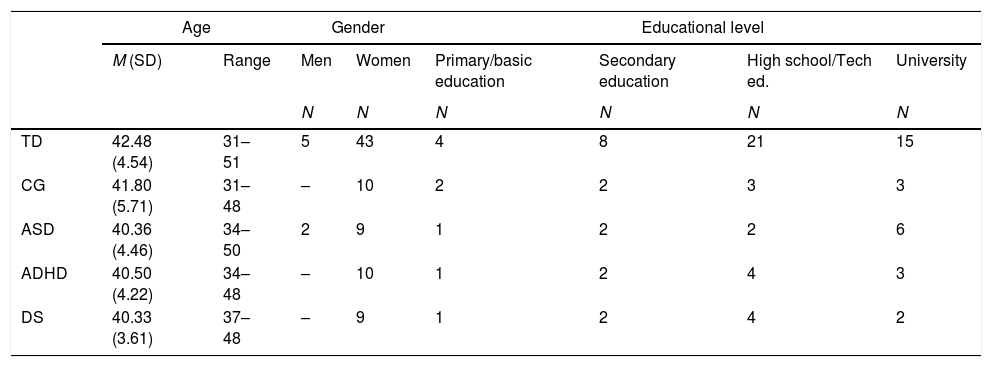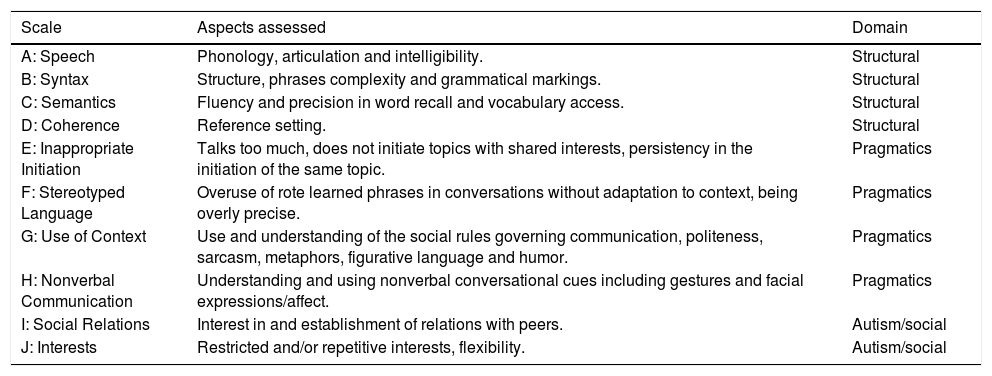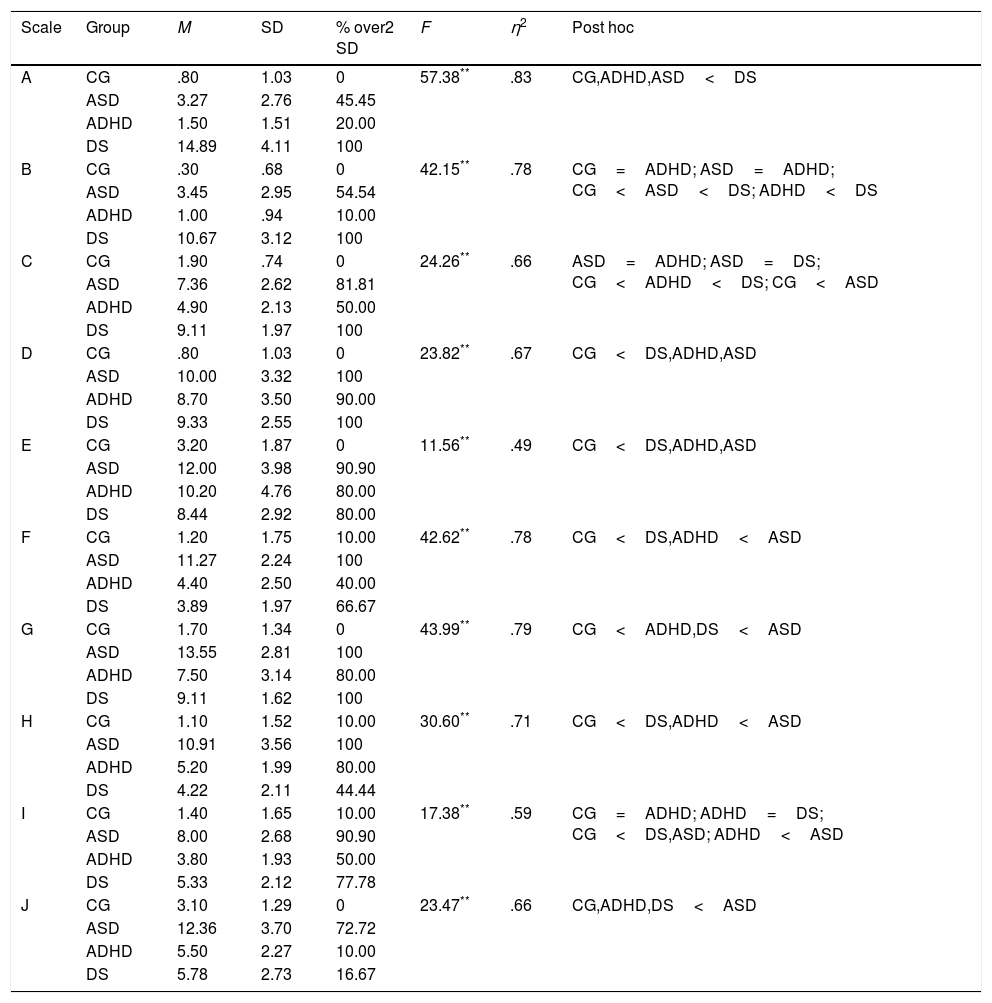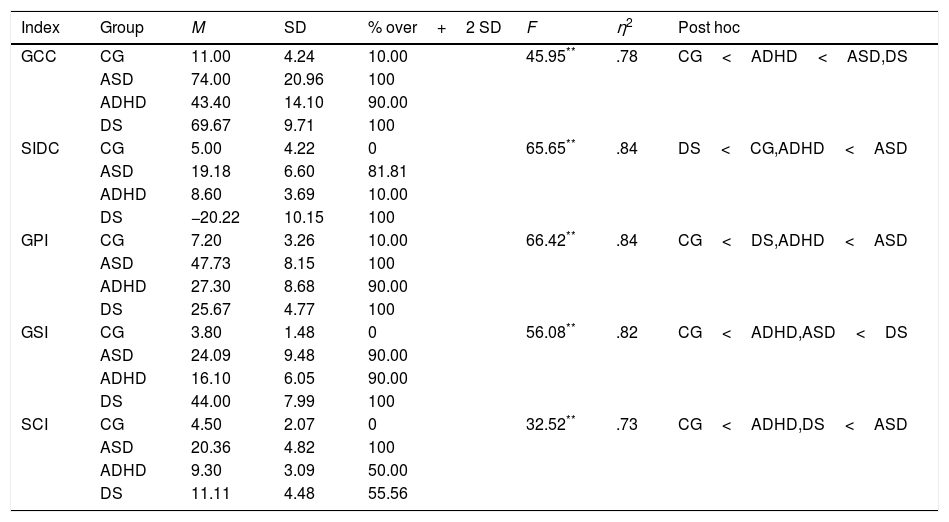Pragmatics is an area of language that may be impaired in a wide variety of disorders. However, there is a dearth of instruments for the assessment of pragmatic abilities. The Children's Communication Checklist (CCC-2) is the most widespread test, although more adaptations of this instrument to other languages are necessary.
AimsIn this paper we (1) develop a pilot study to adapt the CCC-2 to the Galician language, (2) check the capacity of this version to assess communicative difficulties in Galician speakers from 4 to 16 years of age, and (3) we also check its capacity to discriminate the linguistic profiles of different disorders.
MethodThe reference profile of the Galician CCC-2 was established with a sample of 48 schoolchildren. Comparisons of the scores obtained by children with ASD (n=11), ADHD (n=10), Down Syndrome (DS) (n=9) and Typical Development (n=10) were carried out.
ResultsThe Galician CCC-2 (1) accurately identified children with and without communicative impairments, (2) distinguished between profiles with predominance of pragmatic (ASD and ADHD) and structural disorders (DS), and (3) distinguished between different profiles with predominance of pragmatic impairment.
ConclusionsThe Galician CCC-2 seems to be a useful instrument to assess pragmatic disorders and to differentiate among different clinical groups.
La pragmática es un área del lenguaje que puede verse afectada en una amplia variedad de trastornos. Sin embargo, hay una escasez de instrumentos para la evaluación de las habilidades pragmáticas. El Children's Communication Checklist (CCC-2) es la prueba más utilizada, aunque se necesitan más adaptaciones de este instrumento a otros idiomas.
ObjetivosEn este documento 1)desarrollamos un estudio piloto para adaptar el CCC-2 al gallego; 2)comprobamos la capacidad de esta versión para evaluar las dificultades comunicativas en hablantes de gallego de 4 a 16años, y 3)también comprobamos su capacidad para discriminar perfiles lingüísticos de diferentes trastornos.
MétodoEl perfil de referencia del CCC-2 gallego se estableció con una muestra de 48 escolares. Se realizaron comparaciones de las puntuaciones obtenidas por los niños con TEA (n=11), TDAH (n=10), síndrome de Down (SD; n=9) y desarrollo normal (n=10).
ResultadosEl CCC-2 gallego 1)identificó con precisión a los niños con trastornos comunicativos y sin ellos; 2)distinguió entre los perfiles con predominio de trastornos pragmáticos (TEA y TDAH) y estructurales (SD), y 3)distinguió entre los diferentes perfiles con predominio del deterioro pragmático.
ConclusionesParece que el CCC-2 gallego es un instrumento útil para evaluar trastornos pragmáticos y para diferenciar entre diferentes grupos clínicos.
Artículo
Comprando el artículo el PDF del mismo podrá ser descargado
Precio 19,34 €
Comprar ahora






